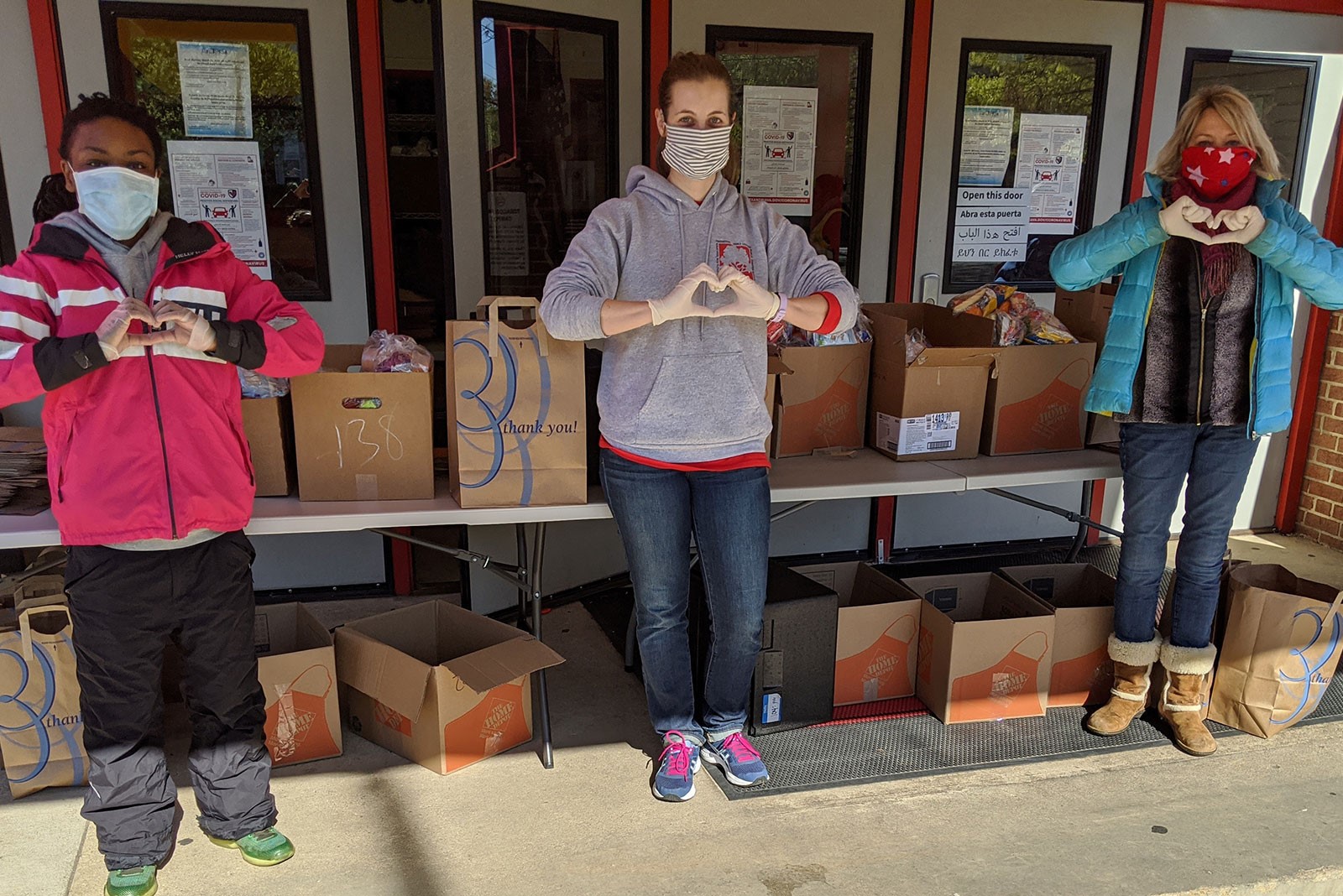
COVID-19 Volunteer Guidelines
During this National Emergency, we understand that those who are not suffering from the virus or who may have already recovered from the virus, may want to help. The U.S. Dept. of Health and Human Services, the Centers for Disease Control, the Virginia and Alexandria City Dept. of Health have compiled some important guidelines for your organization involving volunteers during this crisis. All volunteer activities should adhere to critical health and safety protocols in order to:
- Protect Volunteers
- Protect Residents
- Protect Clients
- Protect Service Agencies
General Guidelines for Volunteers:
DO NOT attempt to volunteer if you are unvaccinated AND have:
- Have experienced symptoms that could be related to COVID-19 in the last 14 days
- Been around anyone who has COVID-19 in the last 14 days
- Traveled to any foreign country in the last 14 days
- Been on a cruise or been in an airport in the last 14 days
- Been to an event where more than 50 people were in attendance in the last 14 days
DO NOT if you are at high risk of severe disease (or who have someone in their household who is high risk); this includes persons who are age >65; have underlying heart disease or lung disease, diabetes, liver disease; are immunocompromised, on dialysis, or have severe obesity with BMI > 40.
DO NOT show up to volunteer for any activity without registering on our site.
DO NOT consider volunteering if you live with or are in frequent contact with people in the higher-risk categories for the virus.
DO ask about any risk that may be associated with the task and DO NOT take part if you are uncomfortable with the level of risk.
DO practice universal infection control precautions.
- Clean and wash your hands before, during, and after volunteering for a minimum of 20 seconds.
- Avoid physical contact with others and maintain a social distance of 6 feet.
- Cover your cough and sneezes with your elbow or tissue.
- If soap and water are not readily available, use a hand sanitizer that contains at least 60% alcohol. Cover all surfaces of your hands and rub them together until they feel dry.
- Avoid touching your eyes, nose, and mouth with unwashed hands.
DO call ahead to the service agency and ask if any additional safety precautions should be taken before, during and after the shift.
DO allow for extra time for additional screening from volunteer organizations or agencies to make sure you are cleared to volunteer for the task.
DO clean any used spaces thoroughly before and after, including table top surfaces and door knobs/handles.
DO use proper Personal Protective Equipment (PPE) if needed/provided for the task.
DO maintain the social distancing of 6ft apart ESPECIALLY when interacting with general public through meal pickups and deliveries. This is critical given the shortage of masks.
DO expect that shifts or opportunities may be cancelled; especially volunteer opportunities working with the vulnerable populations. Please be gracious and understanding.
General Guidance for Organizations:
- Realize that traditional services may shift.
- Clean and sanitize gathering spaces or meal distribution sites regularly. Dispose of cleaning materials properly and contain any contaminated materials.
- Do not compete in the market for scarce supplies that healthcare organizations and providers need every day to perform their duties.
- If congregating is necessary for your task, consult public health partners and exercise extra measures.
- Keep 6-10 foot social distance rules in place during tasks if possible.
- Hang posters in facilities with best practices / social distancing / hand washing etc.
- Provide sufficient and accessible infection control supplies (e.g. hand-hygiene products, tissues).
- Clorox wipes and receptacles for their disposal) in all locations.
When in doubt visit CDC or The Virginia Department of Health for recommendations.
For distribution/delivery:
- For people receiving meals from a distribution point, if a line forms there needs to be cones, chalk or tape on the ground that reminds people to keep at least a 6ft distance. The WHO recommends 6ft.
- For people who are giving meals, they also need to find a way to maintain at least 3ft if possible, use gloves, and wash hands frequently.
- With deliveries, setting meals or supplies on the doorstep and waving and holding conversation from that safe distance to protect the seniors and homebound vulnerable folks is key.
Make sure all volunteers understand any risks associated with the task you would like them to do and understand if they are not comfortable with that level of risk.
- Screen all volunteers and clients as able and before using them.
- It is highly recommended to do temperature checks as volunteers come in for shift, especially if handling food.
- Consider having an isolation space ready in case anyone shows up with symptoms.
- Realize that many volunteers are over age 65 and at a higher risk for contracting the virus.
- Make sure you have the proper PPE available and make sure you train volunteers on its proper use before allowing them to do any tasks that require PPE.
For background and the most up-to-date information, please visit the Centers for Disease Control and Prevention Coronavirus Disease website: HERE
Alexandria City Health Department
U.S. Department of Health and Human Services

